-
 Bitcoin
Bitcoin $96,055.8635
-2.18% -
 Ethereum
Ethereum $2,614.4336
-3.59% -
 Tether USDt
Tether USDt $0.9999
-0.02% -
 XRP
XRP $2.4084
-3.91% -
 Solana
Solana $195.4805
-4.42% -
 BNB
BNB $642.1021
-0.01% -
 USDC
USDC $1.0000
0.00% -
 Dogecoin
Dogecoin $0.2533
-5.30% -
 Cardano
Cardano $0.7674
-4.65% -
 TRON
TRON $0.2410
-1.98% -
 Chainlink
Chainlink $18.4837
-5.56% -
 Avalanche
Avalanche $24.8759
-7.41% -
 Sui
Sui $3.2612
-8.27% -
 Stellar
Stellar $0.3150
-6.27% -
 Toncoin
Toncoin $3.7263
-4.28% -
 Shiba Inu
Shiba Inu $0.0...01571
-4.06% -
 UNUS SED LEO
UNUS SED LEO $9.8401
-0.34% -
 Litecoin
Litecoin $117.1056
-8.90% -
 Hedera
Hedera $0.2228
-8.57% -
 Hyperliquid
Hyperliquid $23.6055
-4.57% -
 Polkadot
Polkadot $4.8246
-5.86% -
 Bitget Token
Bitget Token $6.1508
-4.81% -
 Bitcoin Cash
Bitcoin Cash $330.7094
-3.18% -
 Ethena USDe
Ethena USDe $0.9996
-0.09% -
 MANTRA
MANTRA $5.9286
-0.78% -
 Uniswap
Uniswap $9.4061
-5.88% -
 Dai
Dai $0.9999
-0.03% -
 Ondo
Ondo $1.3397
-4.41% -
 Monero
Monero $221.5400
-1.10% -
 Pepe
Pepe $0.0...09522
-8.80%
What is the issuance and circulation of Polymath (POLY) coins?
Polymath's (POLY) tokenomics model balances utility, governance, and value capture for ecosystem participants, supporting the platform's mission of enabling seamless capital raising and alternative investment opportunities.
Dec 28, 2024 at 10:38 am

Key Points:
- Polymath (POLY): Platform for tokenized securities and assets
- Initial Coin Offering (ICO): Raised $57 million in 2017
- Maximum Supply: 1 billion POLY tokens
- Circulating Supply: Approximately 520 million POLY tokens
- Tokenomics: Designed to balance utility, governance, and value capture for ecosystem participants
What is Polymath (POLY)?
Polymath is a decentralized platform that enables the issuance and management of tokenized securities, such as stocks, bonds, and other financial instruments. By leveraging blockchain technology, Polymath empowers startups and businesses to raise capital seamlessly, while providing investors with access to alternative investment opportunities.
POLY Coin Issuance
- Initial Coin Offering (ICO): Polymath held an ICO in 2017, raising a total of $57 million. In exchange, contributors received POLY tokens, the native cryptocurrency of the Polymath ecosystem.
- Maximum Supply: The maximum supply of POLY tokens has been capped at 1 billion tokens. This limit ensures the scarcity and potential value appreciation of POLY in the long run.
- Token Allocation: The total POLY supply was distributed as follows: 55.5% for the ICO, 18% for the Polymath team and advisors, 15% for the Polymath Foundation, and 11.5% for strategic partners.
POLY Coin Circulation
- Circulating Supply: As of February 2023, approximately 520 million POLY tokens are in circulation. This represents approximately 52% of the maximum supply.
- Lock-Up Periods: A significant portion of the POLY supply is subject to lock-up periods to ensure market stability and alignment with the long-term goals of the ecosystem.
- Token Burn: Polymath has implemented a token burn mechanism to reduce the circulating supply over time. This mechanism involves sending POLY tokens to an unspendable address, thereby decreasing the overall token supply.
Tokenomics
The distribution and utility of POLY tokens are carefully designed to incentivize various stakeholders and ensure the sustainability of the Polymath ecosystem:
- Utility: POLY tokens are used for transaction fees, voting on governance proposals, and accessing premium features on the Polymath platform.
- Governance: POLY token holders have the power to influence the development and direction of the Polymath protocol through community voting.
- Value Capture: The tokenomics model rewards participants for their contributions to the ecosystem, capturing value through utility, governance, and scarcity.
FAQs
1. What is the purpose of the POLY token?
Answer: POLY tokens serve as the native cryptocurrency of the Polymath ecosystem, used for transaction fees, governance, and unlocking premium features.
2. How is the maximum supply of POLY determined?
Answer: The maximum supply of 1 billion POLY tokens is set to control inflation and ensure token scarcity, which can support the long-term value of the token.
3. Why are some POLY tokens locked up?
Answer: Lock-up periods for POLY tokens are implemented to prevent excessive short-term speculation and align incentives with the long-term growth of the ecosystem.
4. How does Polymath ensure token stability?
Answer: Polymath incorporates a token burn mechanism to gradually reduce the circulating supply of POLY, promoting scarcity and price stability.
5. In what ways can POLY tokens be used?
Answer: POLY tokens enable holders to pay transaction fees, participate in governance decisions, and access advanced features on the Polymath platform, such as token issuance tools and compliance services.
Disclaimer:info@kdj.com
The information provided is not trading advice. kdj.com does not assume any responsibility for any investments made based on the information provided in this article. Cryptocurrencies are highly volatile and it is highly recommended that you invest with caution after thorough research!
If you believe that the content used on this website infringes your copyright, please contact us immediately (info@kdj.com) and we will delete it promptly.
- Mutuum Finance (MUTM) Presale Gearing Up to Launch the Next 100x Token as the Crypto Market Heats Up
- 2025-02-12 17:16:11
- Corporate Bitcoin Accumulation: A Game-Changer for Stock Valuations
- 2025-02-12 17:06:11
- Trump's 'Pro-Crypto' Policy Stance
- 2025-02-12 16:56:11
- BCH Bliss 2025 to Focus on Velma Upgrade, Adoption
- 2025-02-12 16:56:11
- New Royal Canadian Mint coin features the work of celebrated Canadian wildlife artist Robert Bateman
- 2025-02-12 16:56:11
- Bitcoin and Ethereum Dip Despite Fed Chair Powell's Pro-Crypto Remarks
- 2025-02-12 16:51:11
Related knowledge
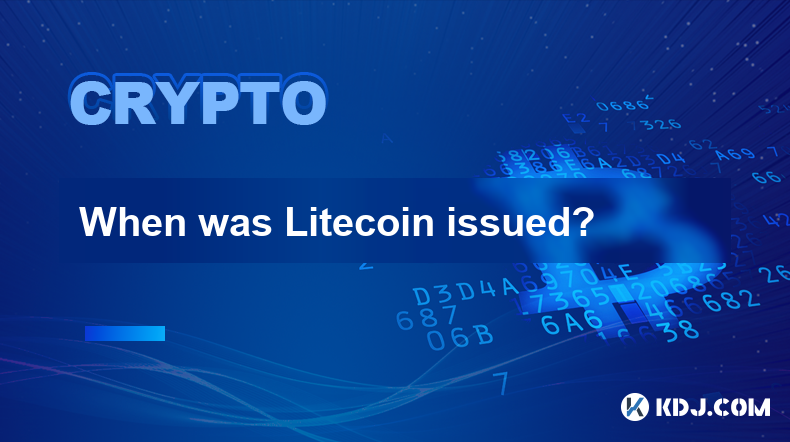
When was Litecoin issued?
Feb 04,2025 at 02:36am
When was Litecoin Issued?Key Points:Litecoin's inception and developmentLitecoin's launch date and market dynamicsLitecoin's technical specifications and key featuresLitecoin's Inception and DevelopmentLitecoin, conceived by former Google engineer Charlie Lee, emerged as a fork of Bitcoin in October 2011. Inspired by Bitcoin's revolutionary blockchain t...
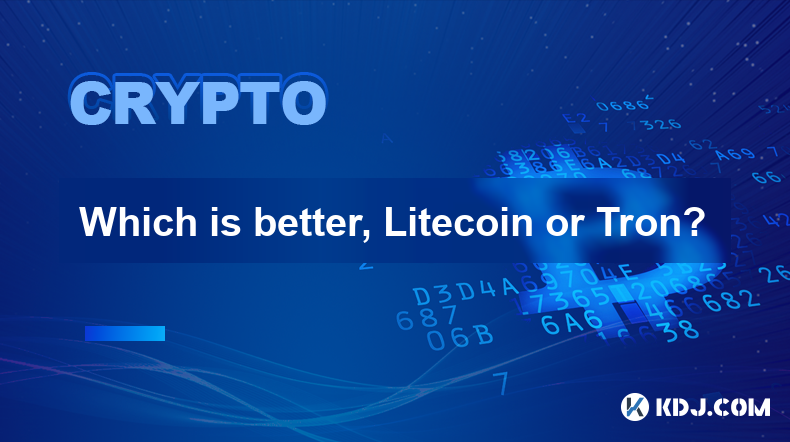
Which is better, Litecoin or Tron?
Feb 04,2025 at 10:30pm
Key Points:Similarities between Litecoin and Tron: Decentralized, open-source blockchain platformsDifferences between Litecoin and Tron: Use cases, consensus mechanisms, transaction speedsFactors to consider when choosing between Litecoin and Tron: Investment goals, risk tolerance, specific use casesPotential benefits and drawbacks of Litecoin and Tron:...
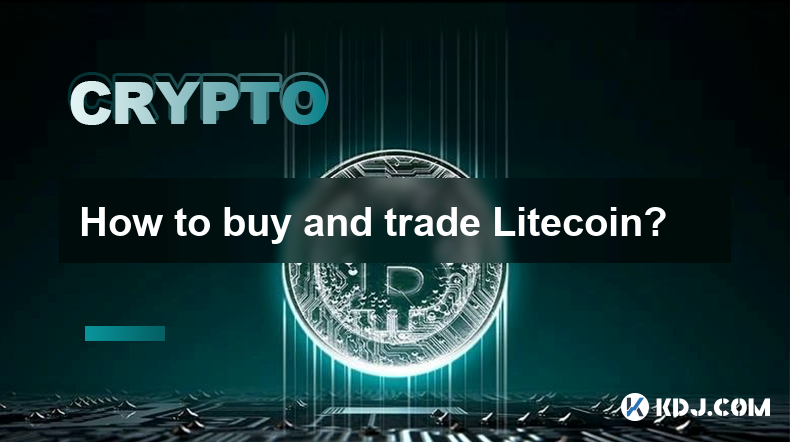
How to buy and trade Litecoin?
Feb 04,2025 at 12:24pm
Key Points:Understand the Basics of LitecoinSelect a Suitable Cryptocurrency ExchangeCreate an Account on the ExchangeFund Your AccountPlace a Buy Order for LitecoinSecurely Store Your LitecoinUnderstand Litecoin TradingHow to Buy Litecoin?1. Understand the Basics of LitecoinLitecoin (LTC) is a decentralized digital currency similar to Bitcoin.Created i...
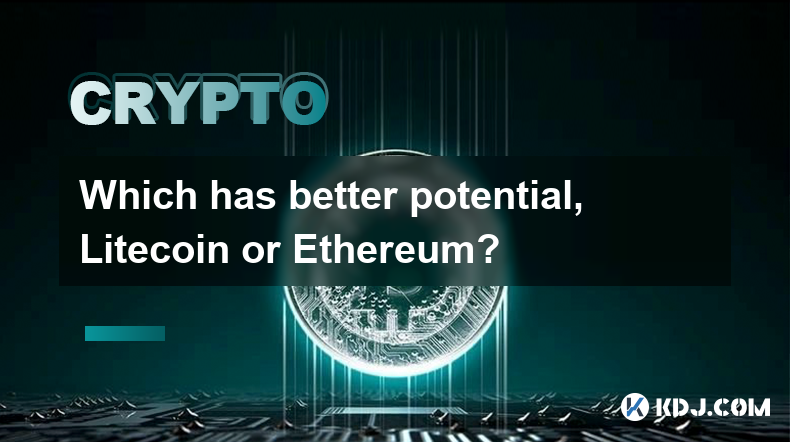
Which has better potential, Litecoin or Ethereum?
Feb 04,2025 at 05:30pm
Key Points:Litecoin and Ethereum are two of the most popular cryptocurrencies in the world.Both coins have their own unique advantages and disadvantages.Litecoin is a faster and cheaper transaction coin than Ethereum.Ethereum is a more versatile platform than Litecoin, and it can be used to create decentralized applications (dApps).Litecoin has a long h...
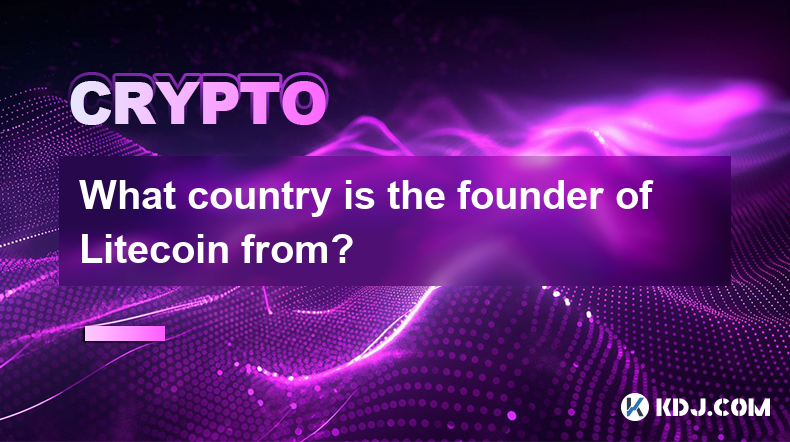
What country is the founder of Litecoin from?
Feb 04,2025 at 05:55am
Key Points:Litecoin's Founder and the Relationship with Charles LeeLitecoin's Technical Features and Similarities to BitcoinLitecoin's Role in the Cryptocurrency Ecosystem and Its PopularityComparative Analysis of Litecoin with Major CryptocurrenciesLitecoin's Community Involvement and PartnershipsArticle Content:Litecoin's Founder and the Relationship ...
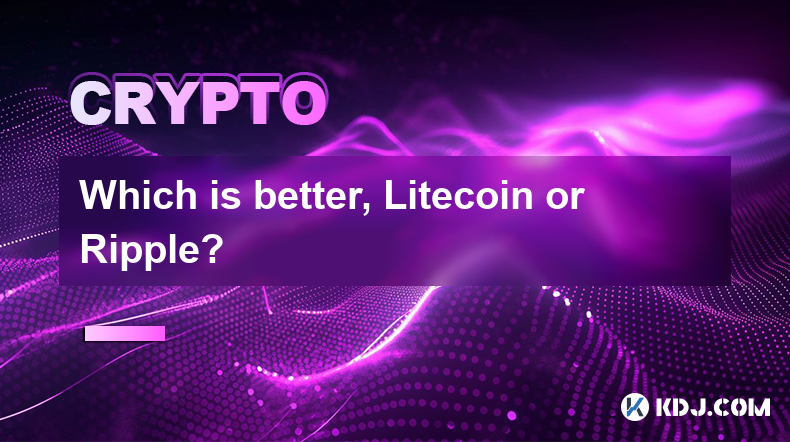
Which is better, Litecoin or Ripple?
Feb 04,2025 at 08:00pm
Key Points:Litecoin: a decentralized, peer-to-peer cryptocurrency based on the Proof-of-Work consensus mechanismRipple: a centralized, enterprise blockchain solution designed for fast and low-cost paymentsDirect comparison of Litecoin vs. Ripple in terms of technology, market capitalization, use cases, and transaction feesPotential benefits and drawback...

When was Litecoin issued?
Feb 04,2025 at 02:36am
When was Litecoin Issued?Key Points:Litecoin's inception and developmentLitecoin's launch date and market dynamicsLitecoin's technical specifications and key featuresLitecoin's Inception and DevelopmentLitecoin, conceived by former Google engineer Charlie Lee, emerged as a fork of Bitcoin in October 2011. Inspired by Bitcoin's revolutionary blockchain t...

Which is better, Litecoin or Tron?
Feb 04,2025 at 10:30pm
Key Points:Similarities between Litecoin and Tron: Decentralized, open-source blockchain platformsDifferences between Litecoin and Tron: Use cases, consensus mechanisms, transaction speedsFactors to consider when choosing between Litecoin and Tron: Investment goals, risk tolerance, specific use casesPotential benefits and drawbacks of Litecoin and Tron:...

How to buy and trade Litecoin?
Feb 04,2025 at 12:24pm
Key Points:Understand the Basics of LitecoinSelect a Suitable Cryptocurrency ExchangeCreate an Account on the ExchangeFund Your AccountPlace a Buy Order for LitecoinSecurely Store Your LitecoinUnderstand Litecoin TradingHow to Buy Litecoin?1. Understand the Basics of LitecoinLitecoin (LTC) is a decentralized digital currency similar to Bitcoin.Created i...

Which has better potential, Litecoin or Ethereum?
Feb 04,2025 at 05:30pm
Key Points:Litecoin and Ethereum are two of the most popular cryptocurrencies in the world.Both coins have their own unique advantages and disadvantages.Litecoin is a faster and cheaper transaction coin than Ethereum.Ethereum is a more versatile platform than Litecoin, and it can be used to create decentralized applications (dApps).Litecoin has a long h...

What country is the founder of Litecoin from?
Feb 04,2025 at 05:55am
Key Points:Litecoin's Founder and the Relationship with Charles LeeLitecoin's Technical Features and Similarities to BitcoinLitecoin's Role in the Cryptocurrency Ecosystem and Its PopularityComparative Analysis of Litecoin with Major CryptocurrenciesLitecoin's Community Involvement and PartnershipsArticle Content:Litecoin's Founder and the Relationship ...

Which is better, Litecoin or Ripple?
Feb 04,2025 at 08:00pm
Key Points:Litecoin: a decentralized, peer-to-peer cryptocurrency based on the Proof-of-Work consensus mechanismRipple: a centralized, enterprise blockchain solution designed for fast and low-cost paymentsDirect comparison of Litecoin vs. Ripple in terms of technology, market capitalization, use cases, and transaction feesPotential benefits and drawback...
See all articles

























































































